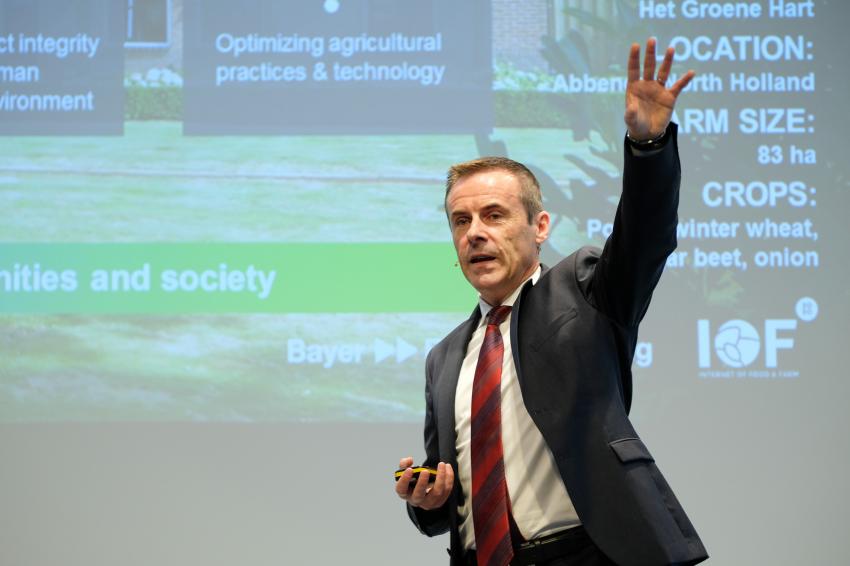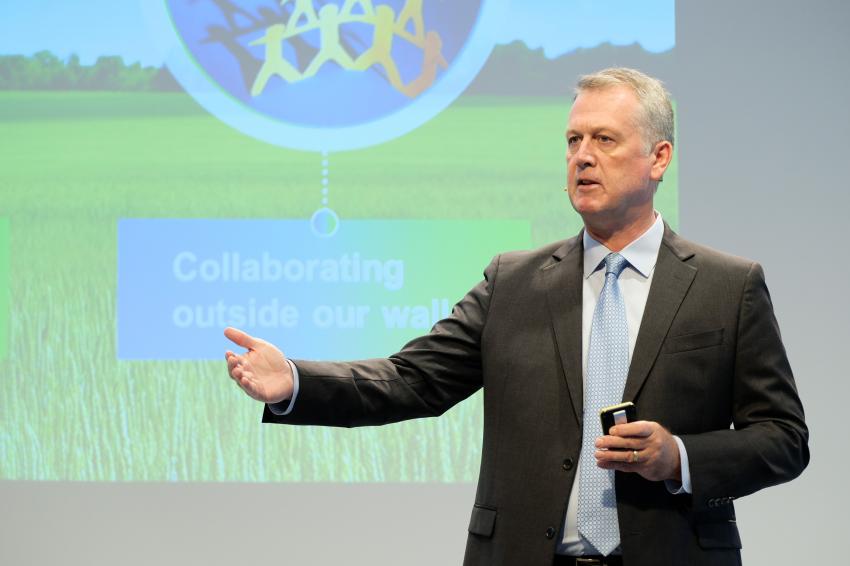Bayer Details Agrochems Outlook and Plans
22.09.2017 -
Bayer Crop Science has voiced its optimism that long-term trends in the agricultural sector remained positive despite the market’s recent weakness and volatility.
Speaking at the company’s Future of Farming Dialog event in Leverkusen, Germany on Sept. 19, Liam Condon, Bayer management board member and president of the Crop Science division, said that although the global seed and crop protection market has remained volatile in 2017 after a weak prior year, high population growth, changing consumption patterns and increasing demand for sustainably produced food would positively impact food production, global agricultural trade and ultimately, farm income.
“Those factors combined with the steadily growing global demand for feed and biofuel feedstocks support a long-term increase in demand that will drive our business,” Condon said.
In this year’s second-quarter financial results, announced in July, Bayer indicated it was anticipating sales for its Crop Science division to dip below €10 billion as a result of a poorly performing Brazilian market. This corresponds to a low single-digit percentage decline on a currency- and portfolio-adjusted basis.
Condon explained that lower pest pressure and drought in key parts of the country over the past two years had led to lower demand for insecticides and fungicides. “We experienced a significant decline in sales and earnings in connection with historically high channel inventories at the end of this year’s harvest season in Brazil,” he said, adding that while elevated stocks affected the entire market, Bayer was likely to be more heavily affected because of its strong position in both market segments. On a more optimistic note, however, Bayer is forecasting a return to growth in Brazil in 2018.
Commenting on the proposed acquisition of Monsanto, Condon conceded that while progress was being made, completion was likely to be delayed. The European Commission launched a Phase II in-depth probe into the merger last month on “preliminary concerns” that the deal could reduce competition in several different markets, especially herbicides.
In consultation with the Commission, Bayer filed an application on Sept. 18 to extend the review deadline by 10 working days until Jan. 22, 2018. “In view of this, an anticipated closing of the deal in early 2018 is now more likely than end of 2017,” said Condon, adding that the company has already received approvals from more than one-third of around 30 relevant regulatory authorities.
The Crop Science division’s R&D expenditure runs at €1 billion annually, according to its global head of Research and Development, Adrian Percy, who said that 15 active ingredients and traits/trait combinations will be launched between 2017 and 2020.
The R&D pipeline also contains more than 100 life-cycle management projects as well as several hundred new seed varieties in vegetable and broad-acre crops. Percy noted, however, that the average investment needed to bring a new product to market had increased, primarily as a result of increasing regulatory requirements.
In addition to its own internal R&D team, Bayer has also established an external innovation platform. “Through strategic research partnerships, crowd-sourcing tools and venture capital funding, we are collaborating on multiple fronts to ensure that we can continue to pioneer innovation in agriculture,” commented Percy.
On Sept. 14, Bayer announced an alliance with biotech start-up, Ginkgo Bioworks. The new company, which will operate out of Ginkgo's facility in Boston, USA, will focus on technologies to improve plant-associated microbes with a major focus on nitrogen fixation.
With regard to digital technologies, Condon said Bayer would invest at least €200 million in its digital farming technologies between 2015 and 2020. Currently, the German group provides digital tools in more than 30 countries and is aiming for further rapid expansion.









